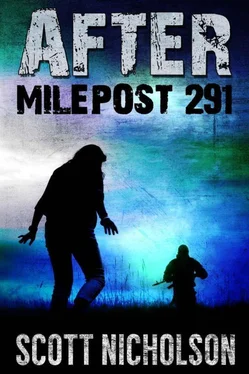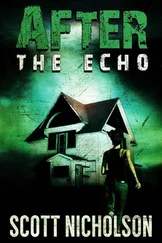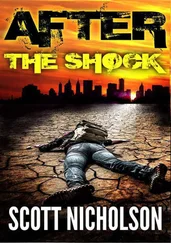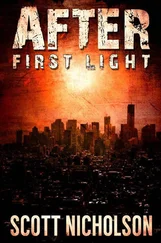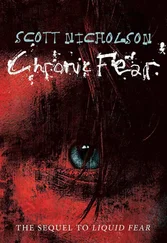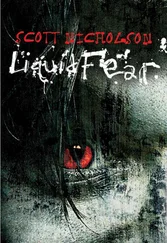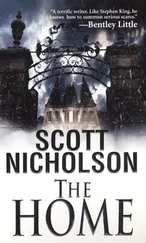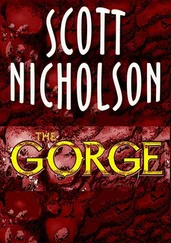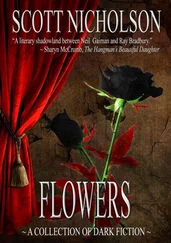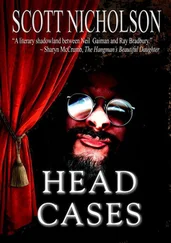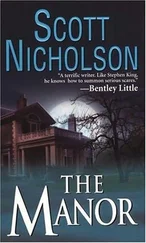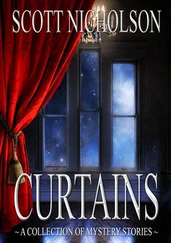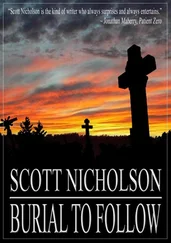“Grimes.”
“That’s some name.”
“Don’t try to change the subject.”
“I didn’t like the other one.”
“Look, even if we make it to your grandfather’s compound, at some point we’re going to have to deal with the Zaps. I don’t know if that means going for the military option or just co-existing, but the one luxury we won’t have is pretending they don’t exist.”
“Maybe we’ll get lucky and they have a built-in burnout in their brain circuitry. An expiration date. We wake up on a Monday and they’re all dead.”
“And where do you fit into that? Do you become only half-dead?”
She rolled up on one elbow so that she faced him. “I just remembered the dream. We were…me and a bunch of people…were looking at this girl who was maybe fifteen. She had a couple of gaping holes in her chest, and her skin was pale and marbled. She was obviously dead. And we—”
“Who is this ‘we’?”
“I don’t know. Just all of us. Anyway, we started tearing this girl open, just dug our fingers into the wounds and peeling back. Trying to see what was inside her. Because we couldn’t figure out why she died.”
“Jesus. That’s what happened to the people at the farmhouse before I got there. The professor said the Zaps just took them apart like they were trying to make sense out of them. Like a kid pulling the legs off a granddaddy long-legs spider.”
Rachel shook her head. She didn’t want to remember any more. Because she was pretty sure the “we” with her in the dream were strangers. Zapheads. And the girl had been so young.
Worse, she hadn’t been the only one. There were piles of corpses, laid out in rows, dozens, maybe hundreds, in a big field. Some were long dead and rotted, like those who had died instantly in the solar storms while trapped inside their homes or vehicles. Others, like the teenaged girl, appeared freshly dead.
Still others showed signs of mutation—the filthy clothes and greasy, tangled hair common to Zapheads—and their bodies commingled in the same piles. The dream hadn’t offered the sense of scent, but Rachel had the impression of an overpowering odor of death and corruption rising from the charnel field.
She fought her way out of the blankets, pulling away from Campbell.
“Hey!” he said. “Where are you going?”
“I have to be with them.”
“I thought we were heading for Milepost 291.”
“No. This is…hard to explain.”
That strange tingle emanated through her body again, and she turned away so that Campbell couldn’t see her eyes. Because she knew they would be sparking like crazy. They almost cast their own light before her.
“Rachel, come back!”
She was nearly to the door when Campbell caught up with her. He wrapped his arms around her, dragging her back to the bed. She kicked and struggled, but he was too strong.
“Let me go,” she cried. “You don’t understand.”
“I understand you’re having weird thoughts, and the worst thing you can do is go running off in the middle of the night with no destination in mind.”
“Who says I have no destination?”
“You don’t even know where we are.”
“I know how to get there,” she said. It wasn’t far, and the psychic pull was like a beacon in the night—all she had to do was tune out her other senses and she could follow it. But she had no way to explain the signal to Campbell. Or even to herself, really. But she didn’t need explanations, because the tug was a compulsion, a force that hinted it could tear her apart bone by bone if she didn’t heed it.
She wrestled with him but he refused to release her. “Calm down,” he said. “You’re not going anywhere until you start making sense.”
“No! I’m one of them, not one of you.”
“That’s not true. You’re Rachel. What you were saying earlier—”
She elbowed him in the ribs and he flung her onto the sofa. She landed hard, nearly snapping her neck, and he jumped on her before she could scramble away. The sofa tilted over and banged against the floor, causing them to roll toward the kitchen. Rachel clawed at his face, drawing blood, and his sudden violence set off something inside her. Strength and rage surged through her, and she saw him not as a person but a black silhouette whose outline shimmered with the most hellish of fires.
“Your eyes!” the silhouette said, and she couldn’t help repeating the phrase as it overwhelmed her senses. Her rage intensified—now she wanted to smash the source of the noise, to wipe out its never-ending resonance.
She grabbed a kitchen chair and swung it wildly at the top of the silhouette, where the flames were brightest.
“Whoa, whoa, whoa, easy!” it said, jumping back and only angering her more.
She raised the chair over her head and was about to bring it crashing down when the flames around the silhouette eased into a darker hue, their intensity fading. The silhouette was unmoving, the black of its form merging to cobalt blue.
“Easy, Rachel,” it said. “I’m not going to hurt you.”
Rachel.
She recognized the word and tried to say it. Then she said it three times.
“Yes, that’s right. That’s your name.”
Now the flames around the silhouette vanished altogether, and the cobalt blue took on shades of detail.
Only a man, not a monster.
She recognized him. Then she remembered his name. “Campbell?”
He nodded. He stood with his palms up, arms held apart to show he was no threat. “Sorry I threw you down. I didn’t know what to do.”
“I became one of them.”
“But you’re back now.”
“No. Not all the way. I don’t think I’ll ever be all the way back.”
That scared her more than she could say.
“Are you okay?” he asked yet again, helpless.
“No, I’m not.” He came to her and she welcomed his embrace.
She wondered if Zapheads could cry. At least she was still human enough to do that. It might be her last human act, but she was going to try her damnedest to flush every little glint and spark out of her eyes.
The progress was slow, but DeVontay wouldn’t let the group stop until they’d put the compound at least half a mile behind them.
After leading them through the forest for a while, he decided it would be safer to travel in the open rather than stumble through the dark trees. After consulting Kiki, the group headed downhill in the direction of the river road, although DeVontay planned to stay well away from Stonewall. Some of the children were nearly at the breaking point due to fear and exhaustion, but promises of food and rest kept them moving.
They emerged from the forest onto a rise of meadow that was part of a farm property. A house and a few outbuildings stood near the road, the river beyond them sparkling like a silver ribbon in the moonlight. The low mist lay across it and seeped up the banks so that the opposite shore was hidden. They wouldn’t be able to see anyone coming from a distance, but DeVontay reasoned the group would also be difficult to see.
“Okay, let’s eat.” He dropped the bundle and was busy spreading the blanket over the high weeds while Kiki and the others gathered around. The blanket wasn’t large enough to hold all of them, but Kiki set the youngest children on it as others dug through the food.
“Sweet!” James howled. “Scored me a Reese’s Cup.”
“Hush,” Kiki said. “Someone might hear us.”
Stephen stood away from the blanket with the “big kids,” chewing a Slim Jim. Carole opened a bottle of juice and had the kids pass it around. DeVontay waited until all the children had selected something before he snapped the tab on a can of Vienna sausages and ate them with his fingers.
Читать дальше
